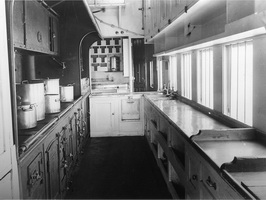

The Freedom Of Information (FOI) Act came fully into force in January 2005 and replaced those parts of the PRA which related to access to records. Until January 2005, access to public records was governed by the Public Records Act 1958, and the Public Records Act 1967. PRONI contains records of the Northern Ireland courts and departments, local government records, and some private and business records.
#Public search nd archive
It is the archive for Northern Ireland operating under the Department for Communities in the Northern Ireland Executive. The Public Record Office of Northern Ireland (PRONI) was established under the Public Records Act (Northern Ireland) 1923. It holds records of departments which are wholly or mainly concerned with Scottish affairs, the Scottish courts and of private individuals and organisations. It was formed in 2011 in a merger of the General Register Office for Scotland and the National Archives of Scotland. The National Records of Scotland is a non-ministerial department of the Scottish Government. Separate national record offices exist for Scotland and Northern Ireland Examples of records deposited locally include the records of certain courts, records of local interest (such as NHS bodies and prisons), and particular records of national museums and galleries. The PRA also gives the Secretary of State power to approve the deposit of records in places other than The National Archives. For short-term bodies such as public inquiries, The National Archives may take in records soon after the inquiry has completed its work to ensure their survival. The process for selecting digital records can be accelerated, to enable the preservation of digital formats and systems that may otherwise become obsolete. The lapse of time gives perspective when judging which records are worthy of permanent preservation. The second review takes place closer to the 20 year deadline. At this point, records with no value are destroyed, and those identified with potential administrative, research or historical value in the future are kept for further review. The first, when the records have passed out of active use around five years after a record was created. Traditionally, the selection of paper public records takes place in two stages. The National Archives works with DROs and their teams to ensure that records are managed and selected in line with guidance, and prepared for transfer according to the correct technical and archival standard. This includes access to experts that advise on all as pects of information and records management, covering both physical ( i.e., paper, film ) and digital records. The National Archives advises government departments on good record keeping, and promotes the effective and efficient management of records across government.
#Public search nd code
The high-level responsibilities of the DRO are set out in the Section 46 Code of Practice on the Management of Records, issued under the FOI Act. The National Archives collects and publishes data on compliance and reports to the Secretary of State.īodies subject to the PRA appoint a Departmental Record Officer (DRO) who is responsible for the management and safekeeping of all records regardless of their format. In practice, the Keeper issues formal guidance such as the Recor ds Collection Policy and promotes good practice in a variety of ways. It placed a duty on the Keeper to guide, supervise and coordinate the manage ment of public records held by bodies subject to the PRA. The PRA places responsibility for the safekeeping, selection and transfer of public records on the body that creates or holds them. It represents the public interest in deciding what records should be open to the public or withheld under Freedom of Information Act 2000 exemptions ( FOI Act ). The PRA makes provision for an independent advisory body, The Advisory Council on National Records and Archives to advise the Secretary of State on issues relat ing to access to public records. The Lord Chancellor has particular responsibility for court records. It sets out the delegated responsibilities of the Keeper of Public Records to safeguard and preserve public records an d maintain the utility of the archive. The P RA established the Public Rec ord Office, now The N ational Archives. Under the Public Records Act 1958 (PRA), the Secretary of State for Digital, Culture, Media and Sport has responsibility for public records and the operation of the overall system. As the national archive for England, Wales and the United Kingdom, The National Archives holds records from across the UK central government and, in smaller numbers, from the central courts.


 0 kommentar(er)
0 kommentar(er)
